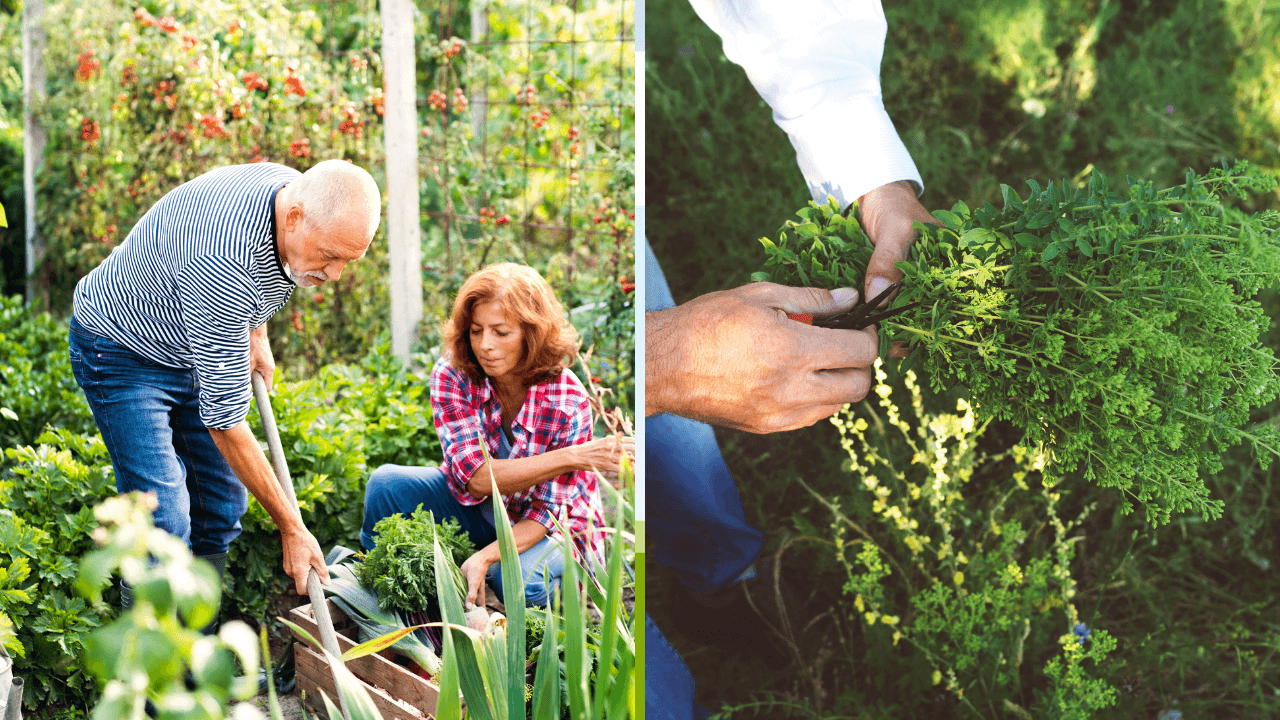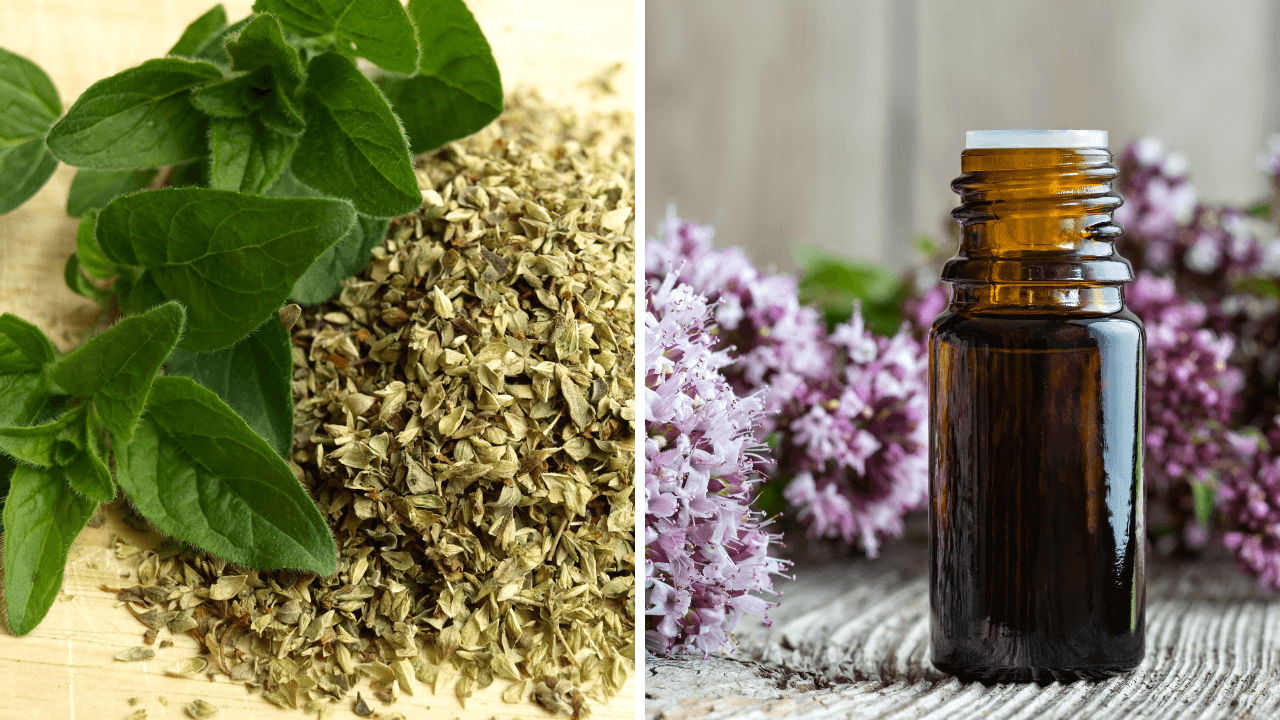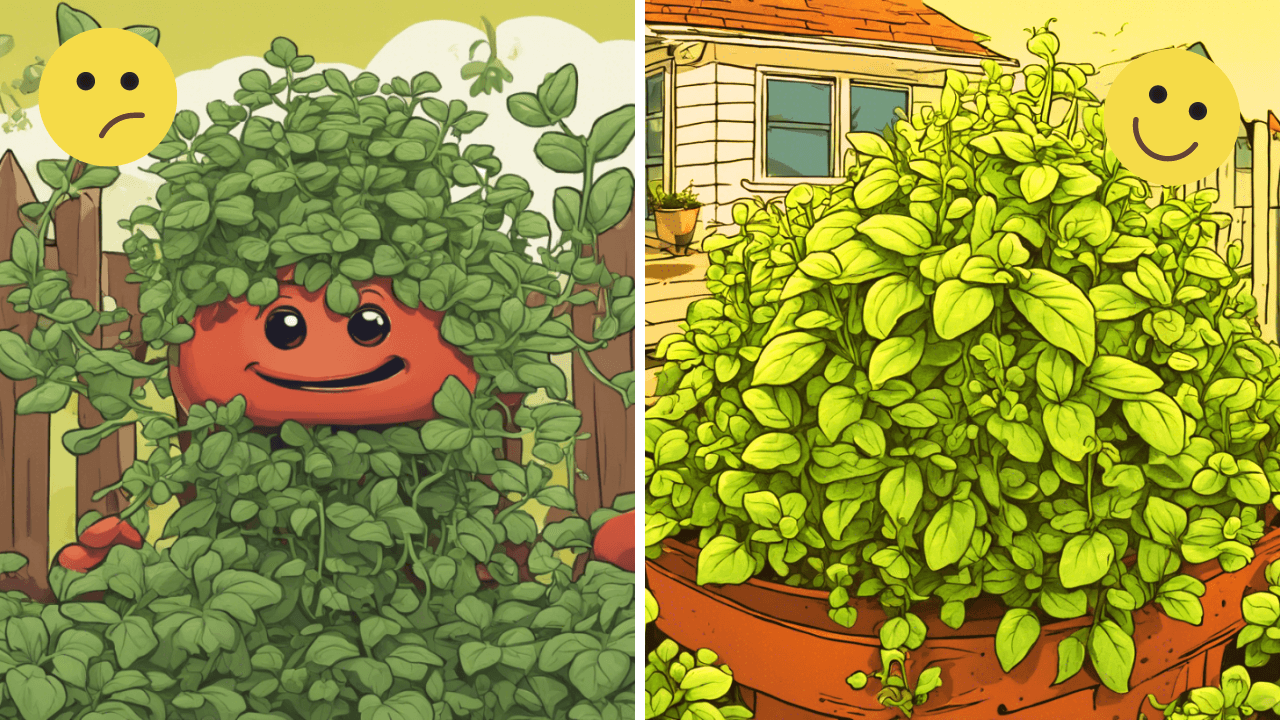Hi there! Bertie here, ready to share some delightful insights into one of my favorite herbs: herb onion chives.
These versatile plants not only bring a delicate onion flavor to your dishes but also brighten up any garden with their vibrant green stalks and lovely flowers.
In this article, we'll explore everything you need to know about herb onion chives, from their subtle yet distinctive flavor to their many culinary uses, nutritional benefits, and tips for growing them right in your backyard.
But first, let's catch up on our progress of our growing herb garden. I have started harvesting some of my lovely herbs and drying them. (I'll have an article about the drying process next.) Here are a few pics to share with you.




Top L: Herbs bundled for drying; Top R: Herb sign over raised box; Bottom L: Drying herbs; Bottom R: Dried herbs in jars
Key Takeaways
- Herb onion chives are a mild-flavored herb from the Allium family with both culinary and ornamental uses, thriving in well-drained soil with full to partial sunlight.
- They provide significant nutritional benefits, being rich in vitamins and minerals, and are linked to improved cholesterol levels, blood pressure, and bone health while also offering possible anticancer properties.
- Chives are easy to grow and harvest, can be used in a multitude of dishes to enhance flavor without overpowering, and have various storage methods to preserve freshness and flavor such as freezing and refrigeration.
Table of Contents
Exploring Herb Onion Chives: The Delicate Herb of the Allium Family
Delicate, versatile, and a staple in kitchens worldwide, herb onion chives are more than just a garnish. Belonging to the extensive onion family, Allium schoenoprasum, herb onion chives have carved their niche as a preferred herb in cooking applications.
Whether fresh or dried, their green stalks bring a mild onion flavor to dishes, making them a favorite among chefs and home cooks alike.
Unlike other alliums, such as garlic or green onions, herb onion chives have a unique identity all their own, both botanically and in the culinary arts.
They bring a gentle hint of onion flavor to your dishes without overpowering your taste buds.
Herb onion chives thrive in a variety of climates, forming dense, attractive clumps. This makes them not only a practical perennial for home gardens but also a delightful ornamental addition, adding a touch of green charm to any space.

Characteristics of Herb Onion Chives
These little herbs are recognized by their dense clumps of slender bulbs that give rise to hollow tubular leaves, presenting an appealing vibrant green color in any herb garden.
To plant herb onion chives, simply choose a suitable location with well-draining soil and adequate sunlight.
In the heart of spring stretching into early summer, herb onion chives gift us with their pink to pale purple flowers. These globe-shaped blooms are not just easy on the eyes but also bring a burst of flavor and color when used in various dishes.
Uses for Fresh Herb Onion Chives in Your Cooking
Herb onion chives have a reputation for being a simple garnish, but their role in the kitchen extends far beyond decoration.
Chopped into delicate pieces, they lend a refined oniony flavor to a myriad of dishes, including:
- Baked potato adorned with sour cream
- Potato salad
- Soups
- Compound butters

When added to recipes, chives add a subtle aroma without overpowering other ingredients, complementing a wide range of dishes.
Even the flavorful flowers, with their edible beauty, can be used to add a touch of elegance and a hint of flavor to salads and salad dressings, showcasing the versatility of this herb.
Herb Onion Chives vs. Garlic Chives and Other Alliums
Difference Between Onion Chives and Garlic Chives
When it comes to flavor, herb onion chives are like a gentle whisper compared to the bold statements made by other alliums. Here are some key differences:
- Herb onion chives have a more delicate taste compared to green onions.
- Herb onion chives have a unique onion-garlic profile compared to garlic chives.
- Herb onion chives are best used raw, as their delicate structure and flavor can turn bitter when exposed to high heat.
- Green onions are more versatile in cooking.
- Spring onions, also known as scallions, have a mild onion flavor and are commonly used in dishes such as stir fry, salads, soups, and frittatas.
While both herb onion chives and green onions can bring a delightful onion flavor to your dishes, herb onion chives have a much subtler taste.
This means you’ll need a gentle hand when adjusting quantities to get the flavor just right. If you're substituting herb onion chives for green onions, remember that green onions have a stronger flavor, so you might need to use a bit more onion chives to reach the desired taste.
Savory Flavor Enhancements with Herb Onion Chives

Onion chives are a secret weapon in the kitchen, capable of infusing savory dishes with an extra dimension of taste. Here are some ways you can use them to enhance the flavor of your meals:
- Add herb onion chives to scrambled eggs or mashed potatoes for a burst of flavor.
- Incorporate them into baked potatoes or pork pot stickers for a more complex taste.
- Sprinkle minced chives on top of soups or salads for added freshness.
- Use them as a garnish for dishes like pasta or grilled meats.
With their versatile and milder flavor, herb onion chives can raise the taste of a many otherwise ordinary meals.
Pairing Herb Onion Chives with Other Ingredients
Much like your favorite pair of blue jeans, herb onion chives fit right in with almost any dish. They mix well with other herbs like basil, rosemary, thyme, fennel, dill, and tarragon, adding a lovely touch of flavor.
Spring onions, with their mild onion flavor, can also be paired with herb onion chives to create a harmonious blend in dishes such as stir fry, salads, soups, and frittatas.
Whether it’s in an omelet with savory cream cheese, garlic-chive fries, or chive cheese cornbread, herb onion chives complement a multitude of savory foods.
As a finishing touch, a sprinkle of herb onion chives over savory dishes not only enhances flavor but also adds an element of visual appeal.
Nutritional Profile of Herb Onion Chives and Health Benefits

When we take a closer look at the nutritional side of herb onion chives, it's clear that these slender greens are packed with essential nutrients. They are rich in:
- Vitamin C
- Potassium
- Iron
- Vitamin K
These nutrients contribute to their overall health benefits. Just 100 grams (about a tablespoon) of raw herb onion chives offer a significant nutritional punch, making them a smart addition to any health-conscious diet.
Using herb onion chives regularly in meals can lead to various health improvements, such as:
- Better cholesterol levels
- Lower blood pressure
- Enhanced bone health
- Antioxidant effects
These are all compelling reasons to sprinkle these green wonders onto your plate more frequently. And, of course, another easy way is to use compounded butter as mentioned earlier!
Health Benefits of Including Herb Onion Chives in Your Diet
Incorporating herb onion chives into your diet does more than just tickle your taste buds; it can also have a profound impact on your health. Here are some health benefits of herb onion chives:
- The Vitamin K in herb onion chives plays a critical role in maintaining bone density and blood clotting, contributing to overall bone health.
- Compounds such as allicin found in herb onion chives may help prevent heart disease.
- Herb onion chives can also help regulate high blood sugar.
These benefits showcase herb onion chives as a flavorful and functional addition to any meal. MedicalNewsToday
How to Grow Your Own Herb Onion Chive Plants

For those of us starting out on our herb gardening journey, herb onion chives are a perfect addition to any home garden. These hardy plants can be sown in early spring, once the frost has retreated, setting the stage for a bountiful harvest.
I actually purchased baby plants for my garden experiment. I do have chive seeds which I plan to plant this fall. They are definitely a cool weather plant so time for planting seeds has gone by for me. And they are perennial so they will come back each year! Yay! 😃 )
Their long growing season extends from the early days of spring, when the leaves are just a few inches tall, until the first frost of fall. This gives us home gardeners a generous window for harvesting and enjoying fresh herb onion chives.
Even for city dwellers, indoor herb onion chive plants can flourish with adequate sunlight. This means you don’t need a large outdoor space to enjoy the benefits of homegrown chives. Just a sunny windowsill or balcony will do the trick!
Ideal Conditions for Growing Herb Onion Chives
To reap the best harvest, herb onion chives demand full sun but can tolerate light shade once they’ve established themselves.
They thrive in well-drained soil that’s rich in organic matter, ensuring the plants receive the nutrients they need for optimal growth. (As you saw from the image at the beginning of this article, mine are in a raised-bed.)
Herb onion chives are adaptable, growing in a pH range from 6.0 to 7.0, and once they’ve taken root, they exhibit a remarkable resilience to drought conditions.
Harvesting and Preserving Your Herb Onion Chive Crop

One of the joys of growing herb onion chives is the ease of harvesting them throughout the entire growing season.
As the temperatures rise, the flavor of the herb onion chives becomes more pungent, allowing you to add a stronger note to your dishes during hotter weather.
To harvest, simply cut the leaves from the base of the plant, encouraging a fresh burst of growth.
After the herb onion chive plants have flowered, cutting them back can stimulate new, tender leaves, ensuring a continuous supply of fresh herbs.
Herb onion chives are most aromatic and flavorful when used immediately after snipping them from the base of the plant.
However, to extend their shelf life and enjoy their flavor beyond the harvest, proper storage and preservation techniques are essential.
While herb onion chives typically last only a day or two in the refrigerator, they can be kept fresh for 1 to 2 weeks if stored correctly.
Short-Term Storage Solutions
Indeed, herb onion chives can remain fresh for up to two weeks when stored properly in the refrigerator, making them readily available for your next culinary creation. To preserve their freshness, they can be:
- Rolled in a damp paper towel
- Placed in a storage zipper bag without sealing it completely
- Stored in the refrigerator’s crisper drawer to maintain their delicate flavor and crisp texture.
Long-Term Preservation Techniques

For those looking to keep herb onion chives at hand for the long haul, freezing is the method of choice. Here’s how to do it:
- Chop the herb onion chives into small pieces.
- Fill an ice cube tray with olive oil.
- Place a small amount of chopped herb onion chives into each compartment of the ice cube tray.
- Freeze the tray until the herb onion chives are solid.
- Once frozen, transfer the chive-filled olive oil cubes to freezer bags or containers for easy access.
- The herb onion chives will stay flavorful for up to six months.
(This is the same method we used to preserve sage in our "Sage Wonders" article.)
Drying herb onion chives is also an option for long-term storage, although it’s worth noting that this method may result in a significant loss of their original flavor.

To conclude, herb onion chives are an undervalued gem in the realm of herbs, offering a delicate onion flavor, a wealth of nutritional benefits, and an aesthetic charm to any garden or dish.
They are simple to grow, versatile in cooking, and can be stored with ease for prolonged enjoyment.
Whether you're a seasoned chef or just love cooking at home, adding herb onion chives to your dishes will surely bring a touch of elegance and a boost of healthiness to your meals.

What is the best way to store herb onion chives to keep them fresh?
The best way to store herb onion chives and keep them fresh is to wrap them in a moist paper towel, place them in an airtight container in the refrigerator's crisper drawer, and they can stay fresh for 1 to 2 weeks.
Can herb onion chives be used interchangeably with green onions in recipes?
Yes, they can be used as a substitute for green onions in recipes, but they have a milder flavor so you may need to adjust the quantity used for the desired taste.
Are the flowers of herb onion chives edible, and how can they be used?
Yes, chive flowers are edible and can be used to add flavor and decoration to salads and dressings. They are a great way to enhance the visual appeal and taste of dishes.
What health benefits do herb onion chives offer?
They offer several health benefits including the promotion of bone and heart health, as well as blood sugar regulation and potential anticancer properties.
How can I grow herb onion chives if I don't have a garden?
You can grow onion chives indoors in pots with plenty of sunlight, making them suitable for people with limited outdoor space. Try placing them in a sunny location to help them thrive.
Thanks for stopping by our beehive! Check out our other articles on our herb gardening. Here are links to a couple of them you might enjoy reading:
What is Lemon Balm: Benefits, Uses, and Growing Tips for Beginners
Is Fennel a Spice? Unveiling This Versatile Herb and Its Culinary Uses
There are lots more so click on the little search icon above the title of this article and browse through our articles!
We'd love to hear from you! Send us any questions or comments or suggestions you might have for us!

Bertie

About the Author: Hi, I'm Jacki, and I write under the persona of Bertie, my beloved maternal grandmother. Bertie, born in 1891, was the wife of a farmer and an incredible gardener. Although she wasn't formally educated, her intelligence and deep understanding of gardening and farming were unmatched. She passed away in 1974, leaving me with a rich heritage of grassroots living and a wealth of practical gardening knowledge. Through her memory, I reach back into this rich history to share timeless gardening wisdom with you.
Before you leave, if you haven't already done so, please subscribe so you will be the first to see what Bertie's buzzing about next! 🐝










Member discussion